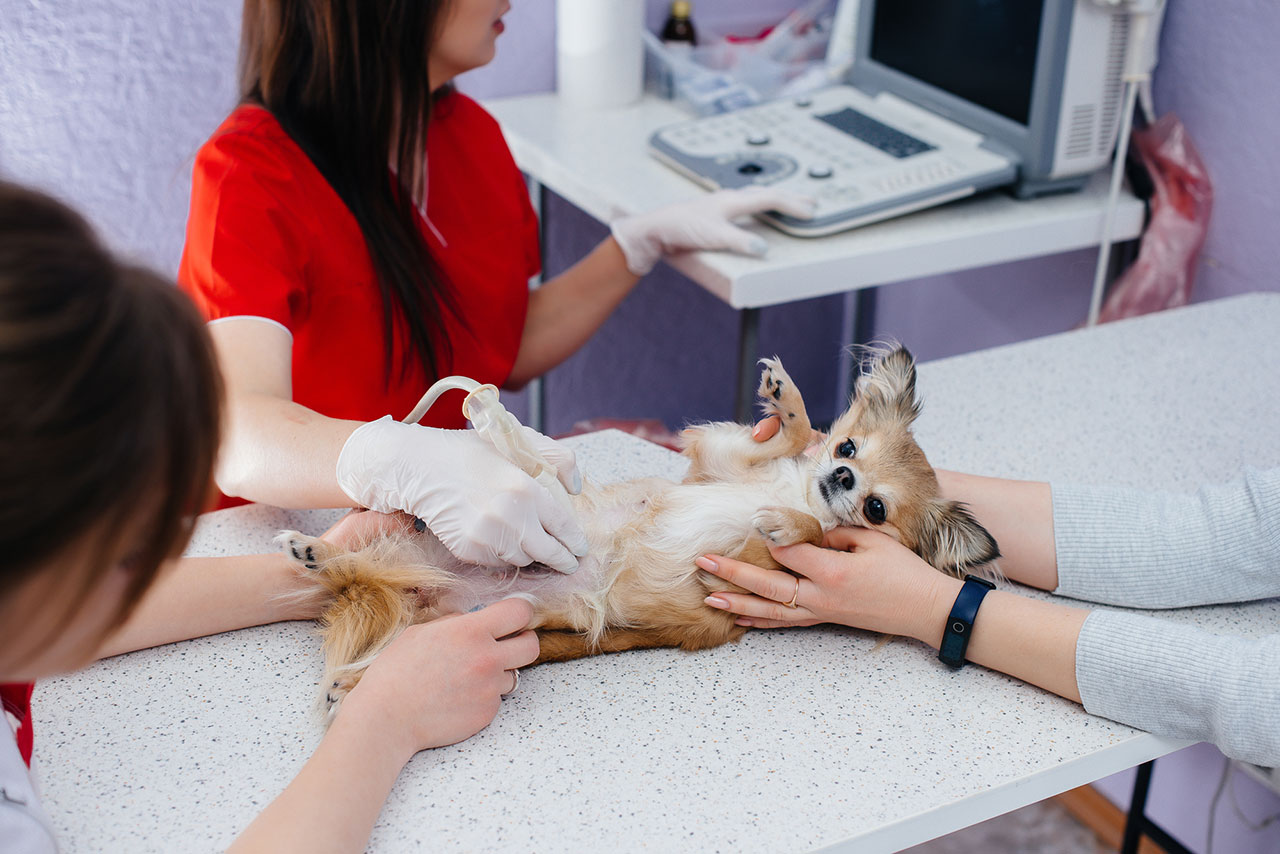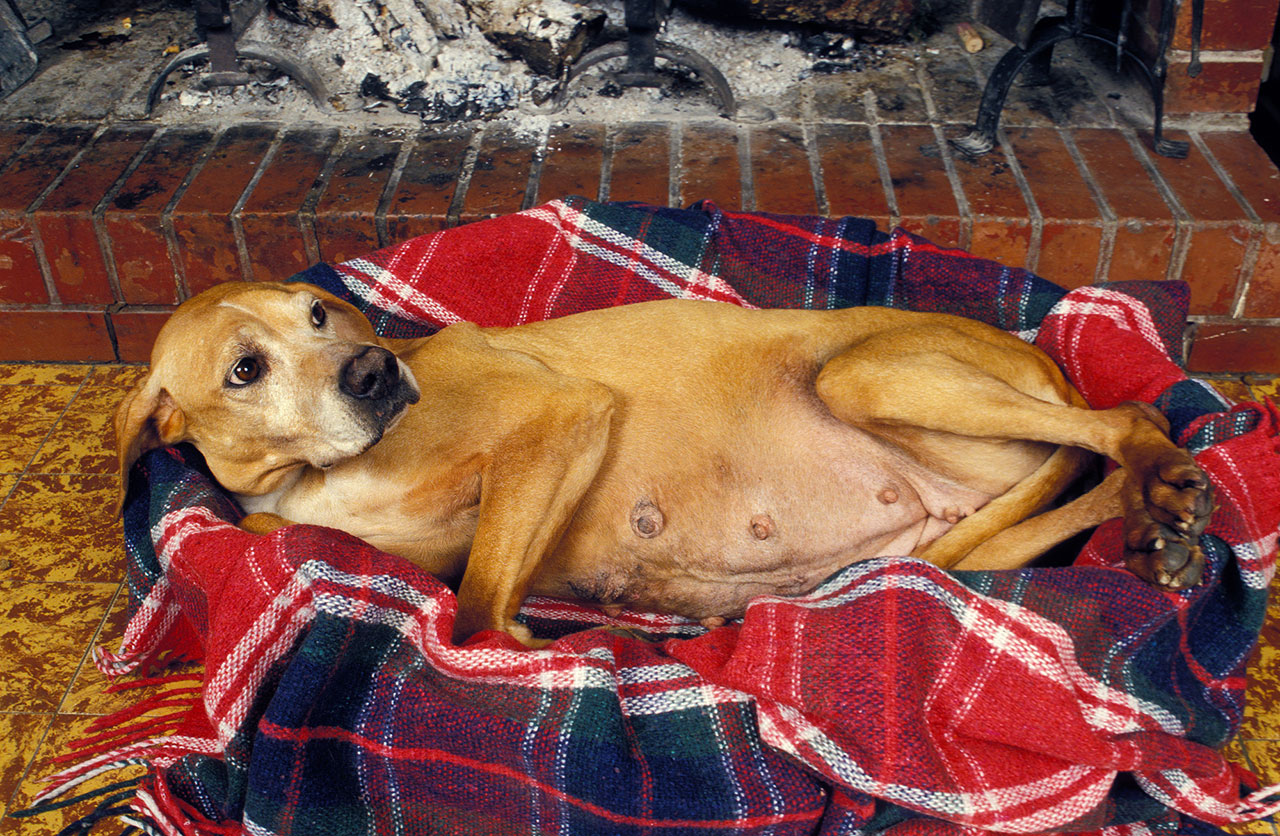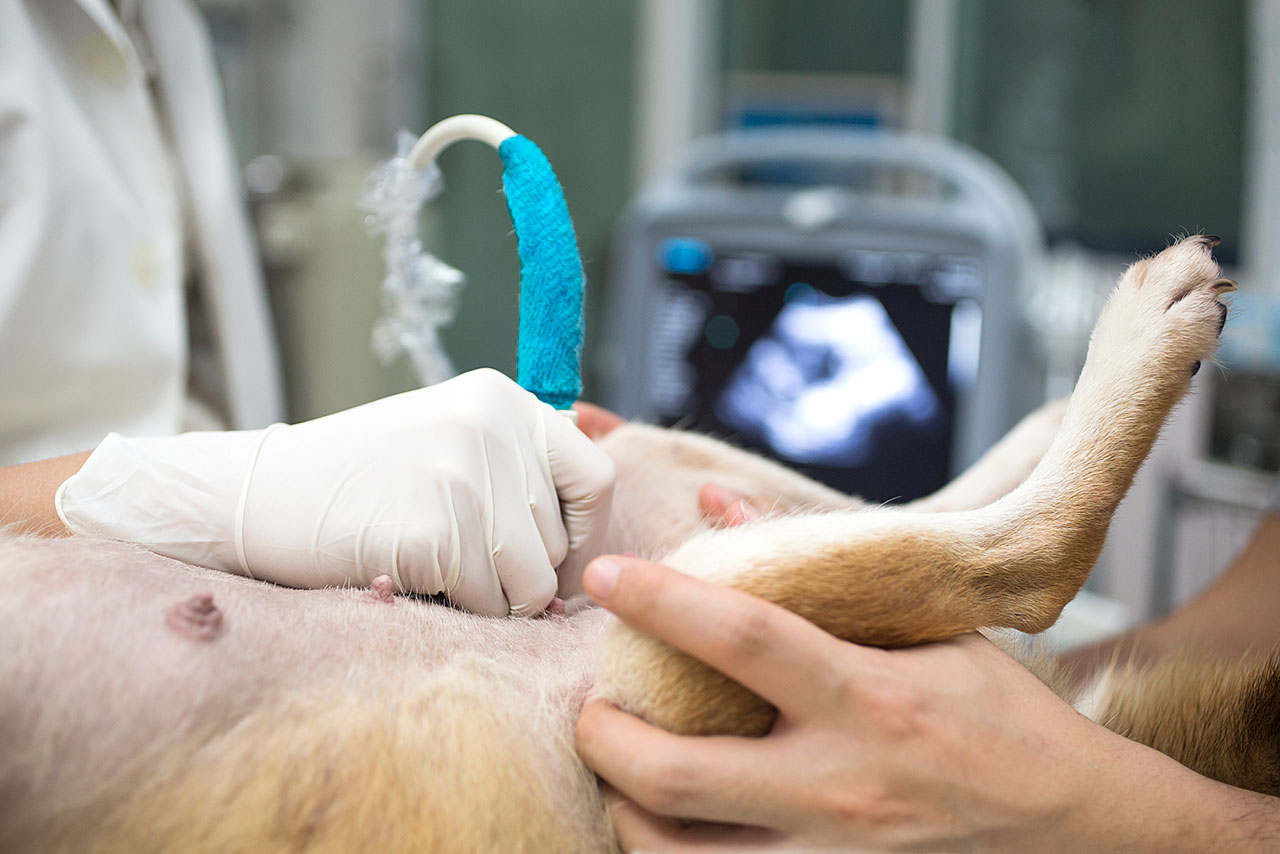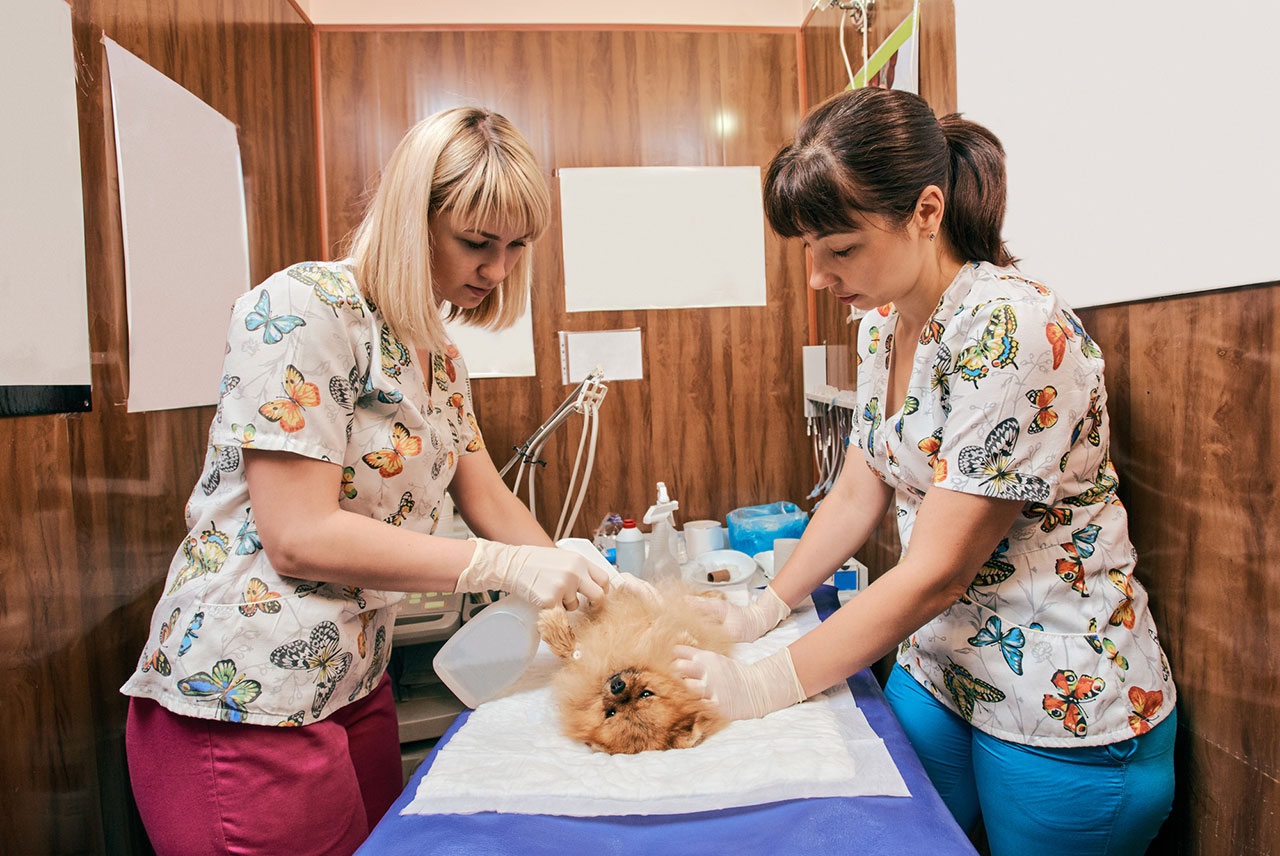Can A Vet Miss Puppies On An Ultrasound?
You’re probably wondering if a vet can miss puppies on an ultrasound. The answer is yes, it’s definitely possible for a vet to miss puppies on an ultrasound. In fact, it’s more common than you might think. What could be the reason behind this? Then read on.
What to Expect During a Vet Ultrasound?
Ultrasounds are a standard diagnostic tool used by veterinarians. They can provide a lot of information about the animal’s internal organs and structures. A pregnant dog will undergo several ultrasound examinations during her pregnancy. So what can pet owners expect during these tests? Here are 10 things to expect during a pregnant dog’s ultrasound.
- A veterinary technician or veterinarian will perform a pregnant dog’s ultrasound. It is one of their most reliable methods.
- The ultrasound will take place in the veterinary clinic or hospital.
- The pregnant dog will be placed on her back on an exam table for pregnancy diagnosis.
- A transducer, which is a small hand-held device, will be placed on the dog’s abdomen.
- The transducer will emit ultrasound waves to create an image of the pregnant dog’s uterus on a monitor.
- The veterinarian or veterinary technician will be able to see the number of puppies the dog is carrying and their size and position in the womb.
- The pregnant female dog will likely remain calm during the ultrasound, though she may feel pressure from the transducer from the ultrasound equipment.
- The abdominal ultrasound should not take more than 30 minutes.
- The pregnant bitch can return to her routine after the ultrasound.
- The veterinarian will provide the pet owner with the ultrasound scan and a copy of the ultrasound images with accurate results.
You Think Your Pet May Be Pregnant? What Now?
When it comes to pet pregnancies, there are a lot of things that pet owners need to be aware of. From false pregnancy, to false negatives, and false positives on pregnancy tests, it’s essential to be as informed as possible about the topic. So, let’s go over 10 things you can do if you think your pet may be pregnant.
- Watch for changes in your pet’s behavior. One of the first things you may notice if your pet is pregnant is a change in her behavior. For example, she may become more passive or aggressive and start eating more or less.
- Check for physical changes. As your pet’s pregnancy progresses, you may notice physical changes such as an enlarged abdomen, nipples that are larger or darker than usual, and increased urination.
- Have your pet checked by a veterinarian. If you think your pet may be pregnant, it’s crucial to have her checked by a veterinarian as soon as possible. It will help confirm the pregnancy and ensure your pet is healthy.
- Get regular checkups. Once your pet is confirmed to be pregnant, it’s important to get regular checkups with your veterinarian. It will help ensure that the pregnancy progresses smoothly and that your pet remains healthy.
- Be prepared for labor and delivery. When your pet gives birth, it’s essential to be prepared. It means knowing the signs of labor and delivery and planning when it happens.
- Have a safe place for your pet to give birth. Having a safe, clean spot for your pet to give birth is essential. For example, it could be boxes, small litters or even a large litter in a quiet room or a designated area in your yard.
- Be prepared for after birth. Once your pet has given birth, it would be a good idea to take care of her and the puppies. It includes cleaning the birthing area, providing food and water, and monitoring the puppies for health problems.
- Get your pet spayed. Once your pet has given birth and the puppies have been weaned, it’s vital to get her spayed. It will help to prevent unwanted pregnancies in the future.
- Keep an eye on your pet’s health. Even after your pet has been spayed, keeping an eye on her health is essential. It includes regular vet checkups and monitoring for any changes in her behavior or appearance.
- Be prepared for the future. Preparing for the future is essential. It includes knowing what to do if your pet becomes pregnant again and making sure you have a plan for her care.
What Might Cause a Vet to Miss Puppies on an Ultrasound?
Veterinarians may miss puppies during an ultrasound due to several reasons. Some of these may be due to the fetal skeleton not being developed enough or the puppies hidden behind the mother’s body. With this in mind, dog owners must be aware of these 10 potential causes that could lead to a vet missing puppies on an ultrasound.
- Not all fetal skeletons are visible on an ultrasound.
- If the puppies are hidden behind the mother’s body, puppy count may not be seen.
- The number of puppies can vary greatly, making it difficult to get an accurate count.
- Puppies can be very active, making it hard to get a clear image.
- Some breeds of dogs have smaller litter sizes, making it easier to miss a number of fetuses.
- The position of the puppies in the uterus can make them difficult to see on an ultrasound machine.
- If the mother is overweight, her excess tissue can make it harder to spot the puppies.
- Older dogs may not produce as many puppies, making them harder to find on an ultrasound pregnancy confirmation.
- Some vets are simply more experienced vet than others and may be better at spotting puppies using ultrasound technology.
- Knowing all of these potential causes can help dog owners be prepared in case their vet misses puppies on an ultrasound.
How You Can Help Your Vet Ensure Accurate Diagnosis During an Ultrasound
When it comes to a due date, blood sample, or an ultrasound, vets need your help to ensure an accurate diagnosis. By providing accurate information and following the vet’s instructions, you can help them do their job and get your pet the care they need.
If your vet has scheduled an ultrasound for your pet, you can do a few things to help them get an accurate diagnosis.
- First, provide accurate information about your pet’s due date and her days of pregnancy. It will help the vet determine how far along the pregnancy is and ensure the diagnostic ultrasound is performed appropriately.
- Next, bring a blood sample with you to the vet appointment. It will help the vet check for any potential problems that could affect the accuracy of the ultrasound scan results.
- Finally, follow the vet’s instructions during the ultrasound. It will help them get the best image of your pet’s internal organs.
Following these simple tips can help your vet get a reliable ultrasound diagnosis. In addition, it will help ensure that your pet receives the care they need and that you have peace of mind knowing that their condition is being adequately monitored.
The Importance of Regular Checkups For Pregnant Dogs
Regarding pregnant dogs, regular checkups are essential for the mother and her puppies. Veterinarians can help ensure that the mom and her babies are healthy and thriving by checking on the dog’s weight gain, diet, heart rates, and overall health. They can also perform ultrasounds, and pregnancy test to monitor the puppies’ development and ensure they grow correctly.
Pregnant dogs need to be seen by a veterinarian more frequently as their due date approaches so that any possible problems can be seen and dealt with quickly. In addition, once the puppies are born, the vet can help with breastfeeding and ensuring everyone gets the proper nutrition.
Regular checkups are crucial for pregnant dogs and their puppies not just in the first weeks of pregnancy, As they help check your pregnant dog’s behavioural changes and ensure that everyone is healthy and doing well, which is the best way to start a happy and healthy life together.
Puppies are so cute that it’s hard to believe anyone could miss them on an ultrasound, but sometimes things happen. If you’re worried about your pet and think there might be something wrong with your dog’s pregnancy, please don’t hesitate to call your vet. They will do the necessary to help figure out what’s happening and ensure your pet is healthy and happy.




